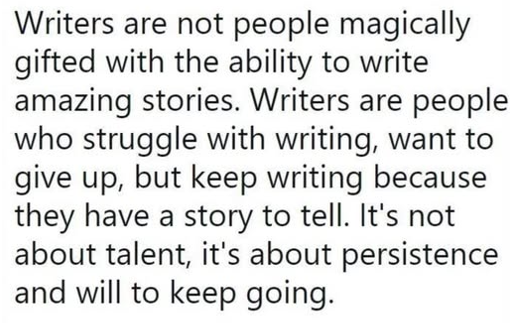Compromises
Terry Odell
 First, if you’ll indulge me, I have a new release. Not exactly a new book, but after being away, having family visiting, writing breaks to do research, hitting the 30K wall, and other real life interruptions, I feared the wip wasn’t going to be finished in time for a pre-holiday release.
First, if you’ll indulge me, I have a new release. Not exactly a new book, but after being away, having family visiting, writing breaks to do research, hitting the 30K wall, and other real life interruptions, I feared the wip wasn’t going to be finished in time for a pre-holiday release.
What did I do? Triggered by an acceptance for a BookBub Featured Deal on July 9th for In Hot Water, book 1 in my Triple-D Ranch Romantic Suspense series, I decided to bundle all 4 books in the series as a box set.
I checked with the marketing gurus at BookBub, and they suggested that a release of the bundle before the featured deal would be a good option. I pulled the manuscripts for all four books into a single file and made the necessary adjustments to front and back matter. Since the first 3 in the series were released in 2016, there were some formatting issues to deal with, but it didn’t take long to have a manuscript file ready to upload.
I went into a lot of the process in a post a while back, so I’m not going to repeat any of that now. If you’re interested, you can find it here.
The new book, brilliantly titled, “The Triple-D Ranch Series” is available for purchase at most popular e-tailers. Here’s a link to one-stop shopping.
And on to the post topic: Compromises
Sue’s post on Monday reminded me of our move from Florida to Colorado way back in 2010. Although this is no longer my path to publication, I know a lot of TKZers are, or are hoping to be, traditionally published. The road to publication, like moving into a new house, can be filled with compromises.
During our renovations and remodels, we found ourselves compromising on a lot of issues. Sometimes it was a matter of money—deciding what things we were willing to cut from our dream plan, and where we were willing to shell out the extra cash. We decided to go with underfloor heating in the bathrooms. However, a custom job, with the heat mat made to order for the bathroom was prohibitively costly compared with the off-the-shelf versions. The compromise meant we were restricted to the sizes the mats came in; we couldn’t get the heat mat under the tile of the entire bathroom, leaving a few areas where the tiles remain cold. But having that extra course of tiles heated wasn’t worth the price differential. It was easier to learn to take a bigger step into the hall bath if you were barefoot, avoiding the first row of tiles.
Another compromise – we had a lot more room in our former house. Finding places for things that went into our wall units and china cabinet meant more furniture. We ended up with a large curio cabinet in the living area. However, it doesn’t have any interior lighting, so as far as displaying treasures goes, it’s not really the perfect system. It ended up being a liquor and glassware cabinet.
We ordered two bookcases for the downstairs, but when they arrived, we realized that one was a shade too tall for where we wanted to put it. (Never thought about the bulkhead ceiling on that side of the room, or how tall the bookcases would be.) So, we found another spot for the second unit, which ate up several feet of wall space, meaning when we get furniture for the room, we’re going to be limited in what will fit where.
When writing, you’ll also learn to make compromises—unless, of course, you’re writing strictly for yourself. Everyone says ‘write the book of your heart.’ But if you want people to read your books, you’re going to have to consider what the readers want. The book of your heart might not be marketable.
Somewhere along the line, you have to decide which battles are worth fighting and which aren’t. Some, you’ll never win. If a publisher wants humor, and you’re not a funny person, maybe that’s the time to realize that your efforts might be better spent elsewhere. Or maybe they want deep, dark suspense, full of serial killers and psychopaths, and you prefer lighthearted mystery. Are you capable of writing what they want? Will you feel like you’re struggling to get each word on the page? Assuming you’ve done your homework and submitted your work to a publisher who publishes what you write, and it’s accepted, what’s next? You’re going to have to deal with an editor who works for the publisher, and knows what they’re looking (or not looking) for.
For example, my editor for When Danger Calls, one of my early traditionally published novels, told me the publisher would nix any use of the word ‘penis.’ She said their readers didn’t like to read it. Was there a point to arguing with this one? No. Easy enough to change.
Another publisher didn’t like the use of brand names. Sometimes, a brand name serves as an immediate image for readers. I had to fight (and contact the companies) to use Knob Creek and Denny’s in a book.
On a grander scale, some genres have their own reader expectations and publishers have their own guidelines.
Once you’re aware of what your publisher and editor expect, you’ll find that you’re compromising with yourself during the writing process. Just like you learn to avoid that first course of tiles in the bathroom, you won’t use those ‘forbidden’ words. If you’re writing a contemporary series romance, you’ll learn to get your hero and heroine on the page and involved immediately, because that’s what readers of that genre want, and the publisher expects you to meet their expectations. If you’re writing a mystery, your readers will assume it’s a “murder mystery” and they’ll want to see that dead body right away.
Even indie authors might have to compromise to meet reader expectations. I’ve written almost 35K words in my next Mapleton mystery, and there’s no dead body. Yet.
How about you, TKZers? Have you had to compromise to keep your submission or book marketable?
New! Find me at Substack with Writings and Wanderings
When breaking family ties is the only option.
Madison Westfield has information that could short-circuit her politician father’s campaign for governor. But he’s family. Although he was a father more in word than deed, she changes her identity and leaves the country rather than blow the whistle.
Blackthorne, Inc. taps Security and Investigations staffer, Logan Bolt, to track down Madison Westfield. When he finds her in the Faroe Islands, her story doesn’t match the one her father told Blackthorne. The investigation assignment quickly switches to personal protection for Madison.
Soon, they’re involved with a drug ring and a kidnapping attempt. Will working together put them in more danger? Can a budding relationship survive the dangers they encounter? Available now.
 Like bang for your buck? I have a new Triple-D Ranch bundle. All four novels for one low price. One stop shopping here.
Like bang for your buck? I have a new Triple-D Ranch bundle. All four novels for one low price. One stop shopping here.
 Terry Odell is an award-winning author of Mystery and Romantic Suspense, although she prefers to think of them all as “Mysteries with Relationships.”
Terry Odell is an award-winning author of Mystery and Romantic Suspense, although she prefers to think of them all as “Mysteries with Relationships.”






 Travel gods willing, I’ll be in the air much of the day, on my way to Hubster’s Bucket List trip of a Mississippi River cruise on a paddlewheeler with a few extra days in New Orleans to enjoy the sights–and the food. I’ll respond to comments when I can.
Travel gods willing, I’ll be in the air much of the day, on my way to Hubster’s Bucket List trip of a Mississippi River cruise on a paddlewheeler with a few extra days in New Orleans to enjoy the sights–and the food. I’ll respond to comments when I can.
 I’m back from Left Coast Crime, and I just know that you’ve all been waiting with bated breath to see how things went on the “Behind the Badge” panel.
I’m back from Left Coast Crime, and I just know that you’ve all been waiting with bated breath to see how things went on the “Behind the Badge” panel. Like bang for your buck? I have a
Like bang for your buck? I have a 









 Shalah Kennedy has dreams of becoming a senior travel advisor—one who actually gets to travel. Her big break comes when the agency’s “Golden Girl” is hospitalized and Shalah is sent on a Danube River cruise in her place. She’s the only advisor in the agency with a knowledge of photography, and she’s determined to get stunning images for the agency’s website.
Shalah Kennedy has dreams of becoming a senior travel advisor—one who actually gets to travel. Her big break comes when the agency’s “Golden Girl” is hospitalized and Shalah is sent on a Danube River cruise in her place. She’s the only advisor in the agency with a knowledge of photography, and she’s determined to get stunning images for the agency’s website.